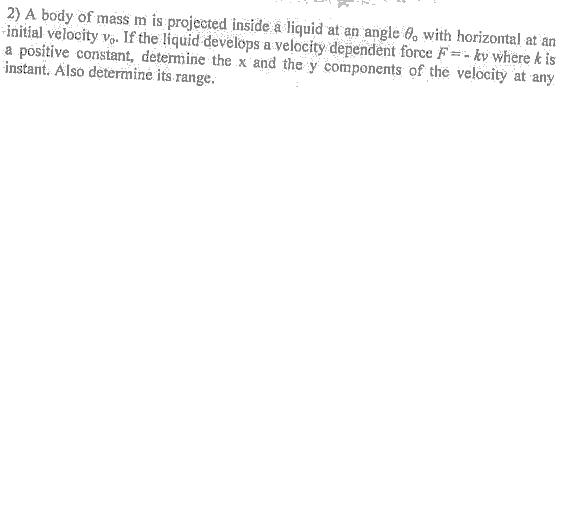bhaiya i am sorry i don't have the ans so i can't verify. give some hints to your working.
5 Answers
qwerty
·2010-06-11 22:41:32
v_{x}=v_{o}cos\theta _{o}e^{(\frac{-kt}{m})}
v_{y}=v_{o}sin\theta _{o}e^{(\frac{-kt}{m})}+\frac{g}{k}[e^{(\frac{-kt}{m})}-1]?????????
Anirudh Kumar
·2010-06-12 05:38:41
qwerty
·2010-06-12 05:41:35
not sure abt the exact ans
but see , F=-kv
so find force Fx in x direction, and Fy in y direction . (dont forget gravity)
now write Fx = m ax =m dvx/dt
similarly for y direction .
